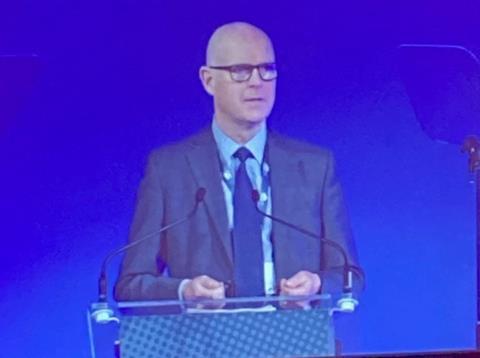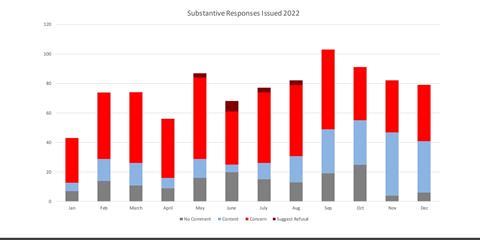Peter Baker warns message about importance of considering fire safety in initial planning ÔÇśhas still not fully landedÔÇś in industry
The head of the ║├╔ź¤╚╔˙TV Safety Regulator has said he hopes to oversee a ÔÇťworld leadingÔÇŁ safety regime as the new body prepares to take on the first of a series of significant duties next month.
Peter Baker, the chief inspector of buildings at the Health and Safety Executive (HSE), which is setting up the ║├╔ź¤╚╔˙TV Safety Regulator (BSR), yesterday said the registrations scheme for higher risk buildings launching next month will be a ÔÇťmilestoneÔÇŁ for building safety.

From 6 April, owners will have to register their existing higher risk residential buildings - buildings over 18m - with the BSR. They will be given six months to register the about 12,500 higher-risk buildings in England. It will be a criminal offence not to do so.
Baker, speaking at the first ever BSR conference in London, said: ÔÇťThat milestone really will usher in a new era for building safety regulation.
ÔÇťIt will ensure for the first time there is a consistent source of information about higher risk buildings and that residents and users of buildings will know absolutely who is responsible for the safety of that building.ÔÇŁ
The BSR will set up a digital portal to allow owners to register their buildings over the next few weeks.
It will then take over a whole suite of new powers in October including becoming the building control body for high-rise residential buildings, meaning developers must apply to BSR for building control approval before starting work on high-rise residential blocks.
Its role will be expanded further when the new ÔÇťgateway two rulesÔÇŁ come into effect, following regulations under the ║├╔ź¤╚╔˙TV Safety Act expected later this year.
Developers will have to submit a building control application to the BSR providing information about the competency of its principle contractor and designer. They will also have to provide detailed information about the work, design and build approach and about the ÔÇťgolden threadÔÇť - a digital record of safety information relating to a buildingÔÇÖs design, build and management.
Baker said: ÔÇťWe are now aspiring to put into place a building safety regime that is world leading and puts residents at the heart but itÔÇÖs not for the government or the regulator to tell you how to best manage the risks in your projects and buildings.
ÔÇťOnly you can decide how to do this, you must take ownership of the risks, you must take ownership of the risks in the built environment.ÔÇŁ
The HSE has since August 2021 been a statutory consultee for planning applications for higher risk buildings through ÔÇťgateway oneÔÇŁ which is not part of the ║├╔ź¤╚╔˙TV Safety Act.
Baker said the HSE has raised concerns about 56% of applications but said this picture has ÔÇťslightly improvedÔÇŁ recently (see graph below)

ÔÇťIt shows the need to consider fire safety in the earliest stages of the life of a high-rise building and that message has not fully landed, this has to change,ÔÇŁ he said.
Baker later in the afternoon said the regulator will also be doing work to ensure no unnecessary bureaucracy or overlap with other regulators.
He said: ÔÇťItÔÇÖs a complex patchwork, you have the social housing regulator, you have the BSR, you still have local fire services responsible for regulation and other regulators as well.
>> Also read: What you need to know about the ║├╔ź¤╚╔˙TV Safety Act
>> Passive fire protection: do we need a new construction discipline?
>> What the second staircase rule would mean for high-rise blocks
ÔÇťWe are working with other regulators to think through how this will work in practice, because the last thing anybody wants is the BSR engaging with you a Monday, the fire service on a Tuesday and then the Regulator of Social Housing.ÔÇŁ
He said the BSR and other regulators is looking at developing codes of practices and memoranda of understanding to ensure clarity over regulatory responsibility. He said there may be areas of building safety where the BSR is not the prime regulator.



























No comments yet